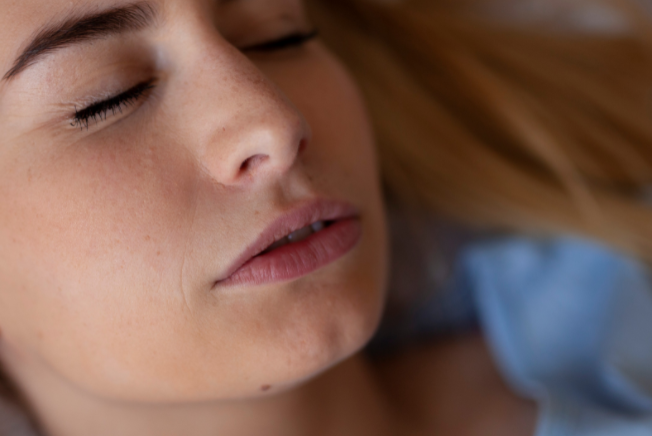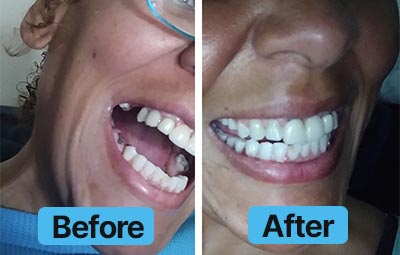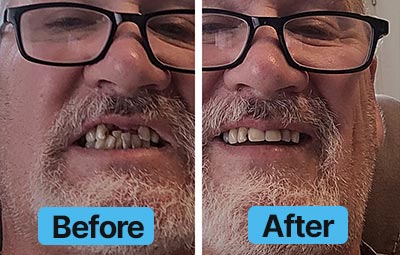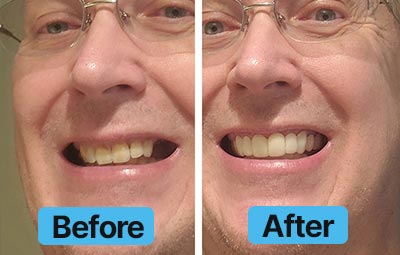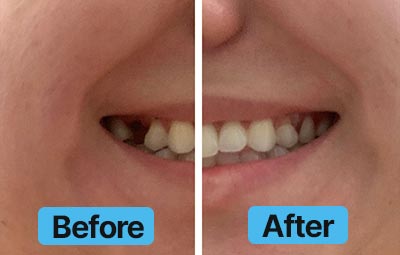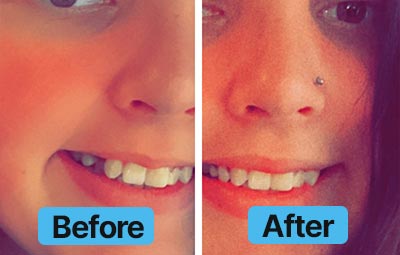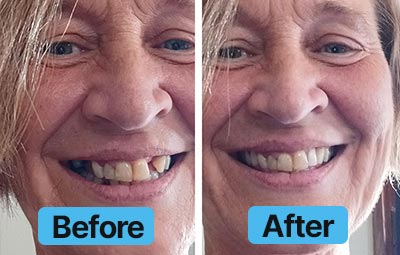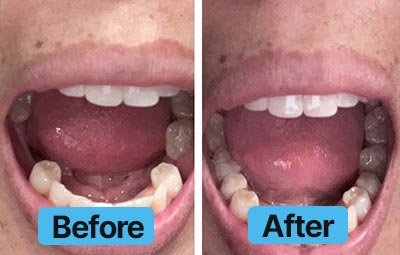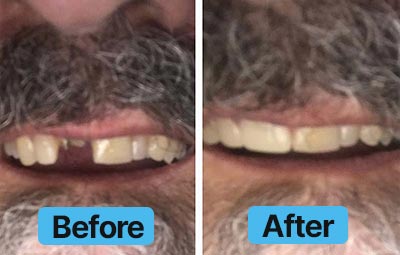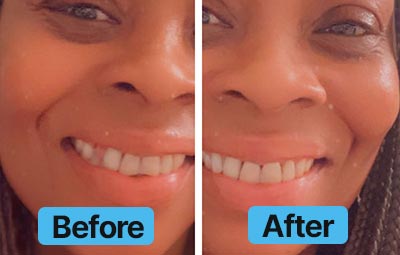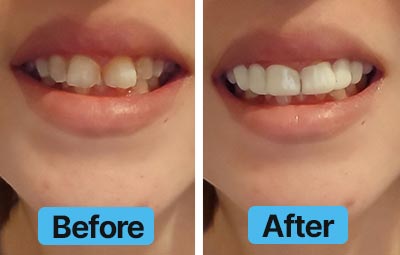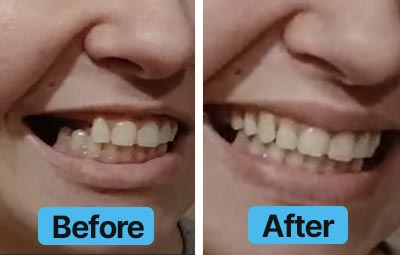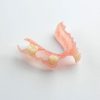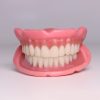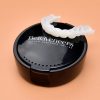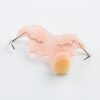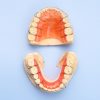Do you experience severe tooth grinding while you sleep? You’re not alone. Millions of Americans struggle with tooth grinding (or bruxism) every year. Many don’t even know that they grind their teeth at night, yet experience side effects that can hurt both your teeth and your jaw.
According to the American Academy of Sleep Medicine, bruxism is defined as “repetitive jaw muscle activity characterized by the clenching or grinding of teeth.” It occurs most frequently during the periods of non-REM sleep. There is no cure for bruxism, but it can be managed and controlled through a variety of methods.
Bruxism is a reality that can be treated before irreversible damage occurs to your mouth. Below, we explore who is more affected by bruxism, methods for mitigating symptoms, and finding an option that works for you or your loved ones.
Who is Affected by Bruxism?
Bruxism, or tooth grinding, is the scientific term for grinding one’s teeth. Bruxism is generally linked to high levels of stress. Dental professionals actually distinguish two different types of bruxism – that experienced during the daytime, and sleep bruxism (also called nocturnal bruxism). While in theory night mouth guards for bruxism can be used during the daytime as well, they typically are solely used for those experiencing sleep bruxism.
When left untreated, bruxism can have several side effects, including:
- Facial pain
- Headaches
- Earache
- Poor quality sleep
- Worn-down teeth, leading to potential tooth sensitivity or even tooth loss
- Tooth misalignment
- Temporomandibular joint dysfunction (TMJ)
In the most extreme cases, permanent damage can occur to a patient experiencing bruxism. Teeth are extremely durable, but once broken they can not heal naturally. Enamel is an extremely hard substance that, once worn down, can not come back. As teeth shift in the mouth, pockets can form in your gums that allow bacteria to gather, causing gum diseases like periodontitis.
When bruxism is diagnosed, it is best to treat it as soon as possible to mitigate the long-term side effects for as long as possible.
Diagnosing Bruxism
Bruxism is a common problem. For those who experience it during the daytime, symptoms are generally obvious – you clench your jaw tightly throughout the day. Nocturnal bruxism happens while we sleep, so often it is only diagnosed by a dental professional who can identify wear and tear on your teeth.
It can also be identified by jaw pain during the daytime. Headaches and facial pain can often be attributed to nocturnal bruxism.
While bruxism can only be identified by a dental professional, nightguards and retainers provided by them can often come at huge premiums. Thankfully, these same products can be safely purchased online for far lower prices.
Treating Symptoms of Bruxism
As bruxism is most commonly linked to levels of stress, the best way to treat it is by eliminating sources of stress in your life. This isn’t always an option for many Americans, but cutting out caffeine and alcohol from your diet can help.
Most people treat bruxism by alleviating the symptoms: limiting the amount of pressure on your jaw. While sleeping, people are unaware of the strength of their biting. This can equate to up to 250 pounds of force on your mouth.
Two solutions exist for mitigating the effects of bruxism: night mouth guards for bruxism, and tooth realignment solutions like braces or orthodontic retainers. While stress reduction methods should be considered, treating bruxism early can lead to tooth damage which can never be repaired.
Which Demographics Are Most Susceptible to Bruxism?
Sleep bruxism occurs in about 13% of adults. Because the causes of sleep bruxism are typically attributed to psychological factors, there is no simple cure to resolving the issue.
Bruxism occurs primarily in two demographics, although it can affect anyone throughout the course of their lifetime. We explore the two primary groups below.
Do Children Experience Tooth Grinding?
Sleep bruxism is actually the most common in children, adolescents, and young adults – according to an article by the Sleep Foundation, nearly 50% of children experience nighttime teeth grinding during their lives.
Nocturnal bruxism in children and teens often begins by the time their first adult teeth emerge from their gums and often ends once their adult teeth are fully formed. While it can be caused by stress, it also may occur naturally.
Bruxism can lead to tooth misalignment, which is already a common issue among children. For children who experience grinding teeth, it is therefore extremely important to follow through on wearing a retainer during the daytime, after corrective measures have been put in place. It may also be important to get them into the practice of wearing a nightguard to prevent further misalignment.
The shape of children’s mouths alters a lot during adolescence, making an investment in a nightguard more expensive as they may require multiple sets throughout their growth. Ordering a night guard for bruxism can be made far less expensive by ordering online rather than visiting a dentist or orthodontist.
Do High-Stress Jobs Cause Tooth Grinding?
Stress is the number one factor causing tooth grinding. For this reason, it is extremely common in emotionally taxing work, such as law enforcement, military personnel, and healthcare professionals.
Between busy work days, it may be impossible to mitigate the stress of these professions. Metal braces are not popular among adults, but clear retainers can help mitigate the damage of shifting teeth while allowing these professionals to continue working unimpeded. Additionally, nightguards for bruxism can help alleviate headaches and facial pain throughout the day.
Bruxism Can Be Fixed by Ordering Online Through Dental Lab Direct
There is no cure for sleep bruxism. However, plenty of solutions are available for mitigating the symptoms and preventing long-term damage to your teeth.
Ordering nightguards for sleep bruxism through a dentist can be expensive, but you don’t have to break the bank to keep your smile intact. Dental Lab Direct offers cheap night guards without sacrificing quality.
Two impression kits are included to perfectly match the shape of your mouth and are sent directly to your home. Detailed instructions are provided to walk you through each step of the process, and can be completed in a matter of minutes. If you are fitting your child for a night guard, make sure to follow the instructions carefully with them.
Once the impression has been taken, all you have to do is send them back in the included package. Within 2 to 3 weeks, you’ll receive your night guard in the mail, ready to wear.
Contact us today for more information regarding our services, or any questions you may have about the process.
 60 DAY warranty on all custom-made products | 1,000+ 5 Star ★★★★★ Reviews
60 DAY warranty on all custom-made products | 1,000+ 5 Star ★★★★★ Reviews